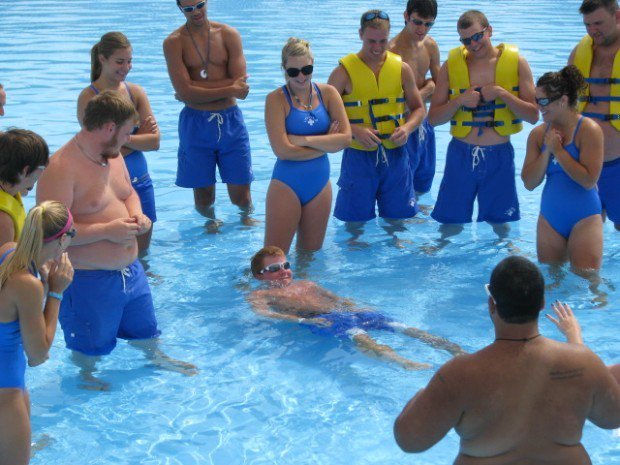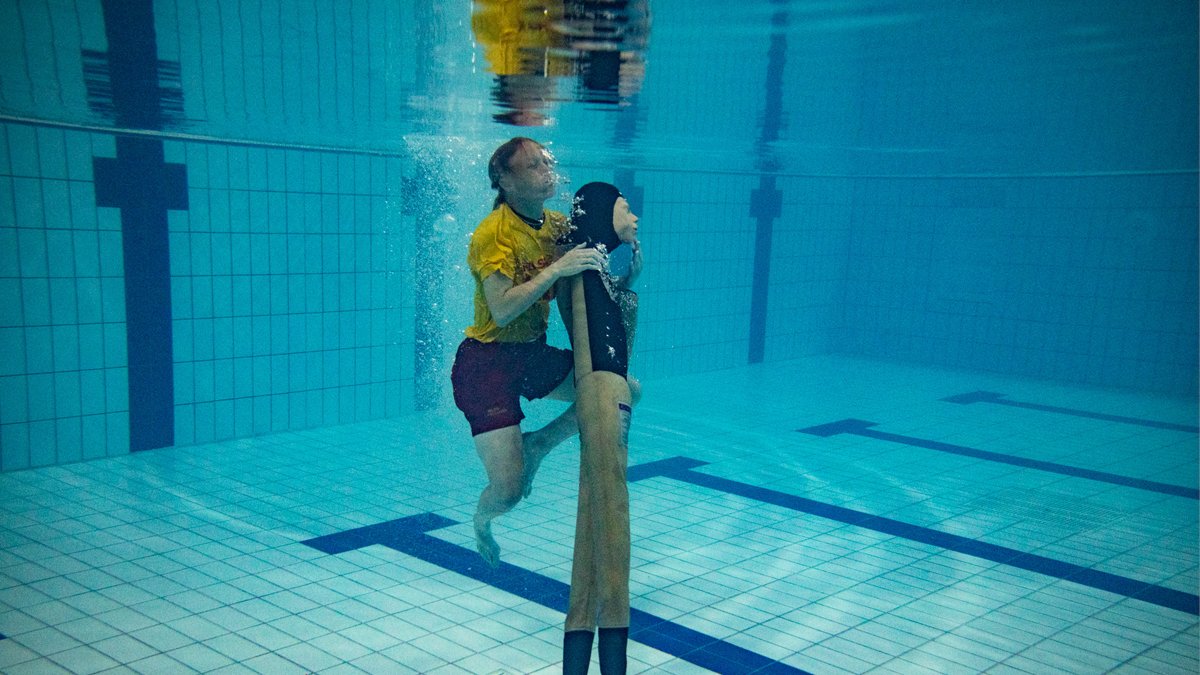
Ensuring a safe environment for swimmers at pools and public beaches is a key role that lifeguards play. They are advanced swimmers who have received training through a reputed training centre such as the American Lifeguard Association or the Red Cross.
The lifeguard should be fully trained and be certified to perform his duties at beaches where a lot of people come to swim and enjoy the summer near the water. The lifeguard is certified for one year after training and after the expiry of the one-year certification, he needs to get a lifeguard recertification class to be updated in his skills and duties.
Monitoring
A lifeguard is there to keep an eye on activity in the waters. Guards are usually sitting on lifeguard chairs to see far and wide. If someone is in danger or engaged in dangerous activities, the lifeguard will blow a whistle to alert those involved. Lifeguards alert co-workers and emergency rescue when someone gets seriously injured or goes underwater.
A lifeguard monitors activity in the water. Guards usually sit in lifeguard chairs to see far and wide. In the event that someone is in danger, the lifeguard will blow a whistle to alert others. Lifeguards alert co-workers when someone is seriously injured or goes underwater. Certification is important for a lifeguard and even when it expires they a get a lifeguard recertification class to update and refresh their skills.
In some cases, lifeguards may perform other duties such as swimming in the water, rescuing swimmers, administering CPR, performing water rescues, or carrying out search and rescue operations. Lifeguard qualifications To become a lifeguard, the candidate must meet minimum qualifications. These include being at least 18 years old, having a valid driver’s license, no felony convictions, no history of mental illness, no substance abuse issues, and no disciplinary actions.
Education
Lifeguards can play an active role in educating people about pool and water safety, as well as protecting the safety of swimmers. The natural instructional instincts of many pool lifeguards should be used to teach swimming lessons. Rather than immediately removing a child from the pool, the lifeguard can explain the rules and help him understand the reasoning behind the safety measures. Lifeguards have the ability to warn swimmers against other dangers in the water.
Lifeguards have to be certified and after the expiry of their certification, they need to get lifeguard recertification. Lifeguards can help educate people on pool and water safety, as well as protect the safety of swimmers. Swimming lessons can be taught by many pool lifeguards. Lifeguards need to teach children about the pool’s safety rules. Rather than immediately removing a child from the pool, the lifeguard can explain the rules and help him understand why safety measures are needed. Lifeguards can warn swimmers about other dangers in the water.
Rescue

Lifeguards are trained to perform emergency rescue procedures, including cardiopulmonary resuscitation. A lifeguard dives into the water with a buoy to help return a swimmer to safety if the swimmer is fatigued, injured or at risk for other reasons. While waiting for paramedics to arrive, the lifeguard will usually provide on-site emergency response if a swimmer is underwater and unconscious.
Lifeguards are excellent swimmers and are also trained in emergency rescue procedures. A lifeguard dives into the water with a buoy to help return a swimmer to safety if the swimmer is fatigued, injured or at risk. If a swimmer is unconscious, the lifeguard will provide an on-site emergency response while waiting for paramedics to arrive.
Evacuation
Lifeguards sometimes have to evacuate swimmers for safety on public beaches where swimmers use lakes, rivers and oceans for recreation. It is important that the lifeguard act quickly to get everyone out of the water if there are sharks or other water dangers in the area. The beach can be evacuated in the event of severe weather event. Lifeguards can help stranded boaters by guiding them back to shore with the help of boating equipment.
Lifeguards have to learn to swim, become CPR-certified, and undergo special training for many of their duties. They also have to wear a special uniform and are given a whistle that is used to alert people to an emergency. They also have to get a lifeguard recertification in order to continue their duties at a pool or at a beach. The most common dangers to lifeguards are drowning, hypothermia and shark attacks. They may be exposed to extreme temperatures, as well as high winds and rainstorms. They also face the possibility of injury and illness. A lifeguard may have to work alone for hours at a time and in dangerous conditions.
Final Words
Lifeguard is an important part of the beaches or pools where people come to swim and enjoy the water. He should be certified by a well-reputed organization or a lifeguard training centre. The American Lifeguard Association is been training lifeguards for more than 30 years now and if you a looking for a lifeguard certification or even a lifeguard recertification course near you, do not hesitate to contact us.

